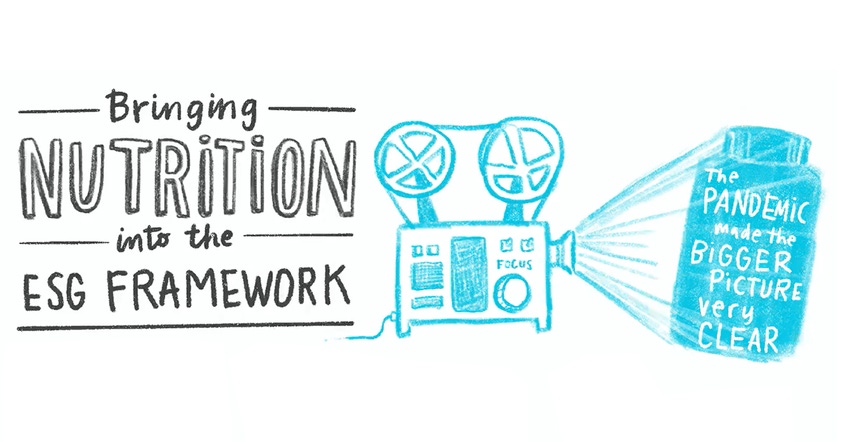July 12, 2023

In 2004, the United Nations published Who Cares Wins, a report encouraging industry players—companies, regulators, investors, analysts, financial advisers and others—to consider the economic, environmental and societal implications of their activities.
Apparently, the encouragement helped. The report established a foundation for the ESG (environmental, social, governance) frameworks that most businesses today use to assure they're operating in a sustainable fashion.
Few doubt that ESG frameworks have had a positive effect—but could they do better? Would adding a fourth mandate focused on nutrition exponentially increase their impact? Perhaps it's time to consider an ESGN framework.
New Hope Network SVP Carlotta Mast and Howard Schiffer, founder and president of Vitamin Angels, discuss this possibility at 10 a.m. PDT Thursday during a virtual session that is part of this year's NBJ Summit.
Schiffer's experiences on the frontlines in the battle against malnutrition have shown him the impact good nutrition can have. Last year alone, Vitamin Angels provided proven, evidence-based interventions to stop malnutrition for over 70 million at-risk pregnant women and children in 65 countries, including the U.S.
A pandemic silver lining
Nutrition is often overlooked in sustainability conversations, as it's not always obvious. "It hasn't been brought into the sustainability matrix because it's something that doesn't impact people's lives every day the same way that environmental issues or climate change do," Schiffer explained. "It's called hidden hunger—it stays hidden."
However, the COVID-19 pandemic might have opened the public's eyes as to the importance of nutrition.
"The pandemic taught us a number of things. One of the most obvious ones is that, when it comes to health, borders are irrelevant," Schiffer said. It also taught us that a proper diet goes a long way toward fighting disease. "The (supplement) industry saw growth that was astronomical within those two years because the pandemic made it clear to people that immunity was our biggest safeguard. The pandemic made the bigger picture very clear: We've got to build up our immune systems and we've got to look at global solutions."
The Copenhagen Consensus
While nutrition should play a role in ESG frameworks simply as a matter of good health, businesses exist to make money, so the financial ramifications can't be ignored.
A strong indicator of how nutrition and finance intersect can be found in the work of the Copenhagen Consensus, an economists think tank that, according to its website, "researches the smartest solutions for the world's biggest problems, advising policy-makers and philanthropists how to spend their money most effectively."
In the Copenhagen Consensus' second meeting in 2008, an expert panel delivered a ranked list of "the most promising solutions to 10 of the most pressing challenges." The number one solution addressed the challenge of malnutrition with micronutrient supplements for children (vitamin A and zinc); number three was micronutrient fortification (iron and salt iodization); and number five was biofortification.
Keep in mind, these are economists who saw the massive financial value of progressive nutrition policymaking, so it's not like they had a horse in the nutraceutical race.
"The Copenhagen Consensus was a proof point that we have to start here," Schiffer insisted.
'Opportunity is tremendous'
Not only is investing in nutrition a smart bet for human health, it has the potential to reap big financial dividends, according to Schiffer.
"Opportunity is tremendous," he claimed. "This happened with the environmental movement. When international organizations were calling for private enterprises to step forward and come up with solutions, the environmental movement saw an opportunity and jumped on it. There was all this money that went to solar. It went to wind power and, of course, it went to electric vehicles.
"Institutional investors saw an opportunity to help solve society problems and also come up with good investments. I think the same thing is possible now with nutrition."
The next step in making this a reality is a united nutrition industry. "If we could look beyond our individual companies, if nutrition comes to the forefront and is validated… there's a very big opportunity here for this industry," he said.
To get involved with Vitamin Angels, reach out to Associate Director of Sustainability Chris Hortinela at [email protected].

About the Author(s)
You May Also Like





